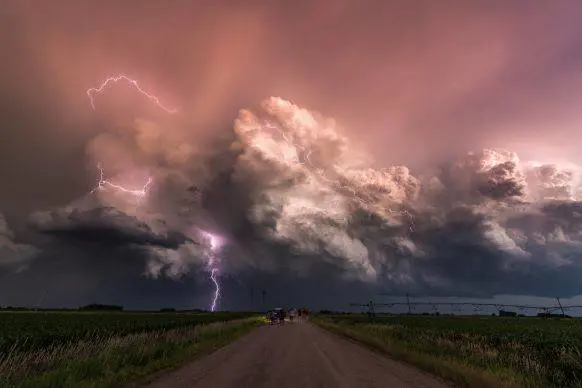
We are smack dab in the middle of severe weather season. Unsurprisingly to us Midwesterners, tornadoes are one of the world’s most common and dangerous natural disasters. With a high occurrence rate and an unthinkable amount of material damage and fatalities caused, it is important to be prepared should your home or business be caught in the middle of one of these storms. Check out these tornado preparedness tips to keep you safe this severe weather season.
Protecting Individuals
It is all about having a plan in place. Homeowners should have an emergency procedure in place for everyone that lives in the home to follow in the event of a tornado or other severe weather occurrence. The same goes for business owners. It is vital that all employees are aware of the plan should you experience tornadic activity. Practice tornado drills both at home and at work to ensure everyone knows where they should go to take cover. Beyond having an emergency plan on standby, it’s important to monitor local radar and weather information regularly to stay up to date on what is happening outside. It is suggested you download any of the many, many smartphone apps that can send push notifications alerting you to tornadoes or other severe weather.
According to the National Weather Service, if you are in the direct path of a tornado, keep all exterior doors and windows closed to minimize the rain and flying debris that enters your home. You should also keep all interior doors closed to compartmentalize the house. Then it’s time to seek shelter in your “Safe Room.” This should be a basement, closet or any small interior room on the first floor of the house, avoiding rooms with an outside wall or glass windows.
Protecting Property
Making sure all individuals on your property are safe is the main focus in tornado preparedness, but it is also important to plan accordingly to protect the property itself. When constructing a new building, work with your contractor to incorporate wind resistance techniques and products. If focusing on an existing building, you can retrofit your home by strapping the roof, adding reinforcements, and making entry and overhead doors more wind resistant. You can also replace your garage doors with high wind-rated ones.
Flying debris is one of the biggest dangers that come with a tornado. You can minimize the impact of flying debris by trimming trees and branches that could fall on your home or powerlines, replacing gravel and rock around the property with dirt, and bringing in outdoor items prior to an impending tornado threat.
The Aftermath
If a tornado has damaged your property, contact your insurance carrier to begin the claims process and review what is covered on your policy. Take photos and videos and keep a record of expenses incurred for consideration in your claim. If possible, and if it can be done safely, prevent any further damage to the property by laying tarp over the roof and tidying up the inside of the building. It is important to note that there may be structural damage to the building following a tornado. Do not enter a structure that may have taken on serious damage or is at risk for collapsing.
At CommunityAmerica Insurance Agency, we're here to help you protect what matters most. From your home to your family’s future, our team is ready to guide you through insurance options that bring peace of mind when the unexpected strikes. If you'd like to speak with an insurance agent, call
800.892.7957 or
request a quote online today.






